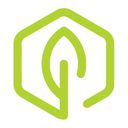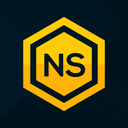5 Remote Resume Questions Answered by a Recruiter

I’ve been in the recruitment industry for years, and during that time, a lot has changed – but one of the biggest shifts I’ve seen is the staggering rise in the remote job market.
With more professionals seeking flexible and location-independent lifestyles, employers have responded in kind by offering more remote opportunities.
This is an exciting time for the job market, but many professionals have been left confused about how to create a resume for a remote position.
Below, I’ll be answering some of the most common questions job seekers ask about creating a remote resume:
1. Are remote resumes the same as traditional ones?
For the most part, a remote resume will follow the same fundamental rules and format as a traditional one. This means that it should be no longer than two pages, needs to be tailored towards the specific company and role and should be optimized for Applicant Tracking Systems (ATS).
Additionally, it’s even more important to ensure a remote resume is easy to navigate, with clearly signposted headings. Why? Well, remote roles are often open to worldwide candidates and may well receive thousands of applications. For this reason, recruiters and hiring managers are time-strapped and don’t have long to read through each application. Trust me, they’ll seriously appreciate an easily legible and scannable resume!
The only significant difference between a traditional and remote resume is that employers will generally be looking for slightly different skillsets – which I’ll cover next.
2. What skills should I include on my remote working resume?
Every remote role will require a unique set of hard skills. For example, a graphic designer will need a solid understanding of programs like Adobe and Photoshop, while a digital marketer might require social media, copywriting and SEO skills.
The most important thing here is to tailor your resume to the role you’re applying for. Spend some time reading over the job description and make a list of every skill and software mentioned. You should then aim to discuss how you’ve used these specific skills, throughout your resume.
But a huge factor of remote jobs is that they require a strong set of soft skills, too – and these will remain largely the same, no matter what industry you work in.
You’ll be working remotely, so employers need to be able to trust that you are organized, self-motivated and can manage your workload independently.
As a result, some of the top soft skills to list on your resume include:
- Time management
- Flexibility
- Communication
- Self-motivation
- Organization
- Problem solving
Rather than merely listing these skills (remember, employers have no real reason to believe you), aim to give real-life examples of times you’ve used them in previous roles.
3. How can I showcase my remote experience?
There are several ways you can show that you’ve got remote work experience.
Firstly, a traditional resume calls for you to list the company name and location, but instead of giving the location you can simply list this as ‘remote work’.
Alternatively, you could break your work experience section into two. Create one section that lists previous roles in the traditional way, and then have another section entitled ‘remote work experience’ to list the remote positions you’ve had. This is a great way of making sure employers see that you’ve already got some remote experience under your belt.
What’s more, your employment history presents another chance for you to showcase your skills. For example, if the job description lists communication skills as a key requirement, make sure to specifically showcase how you used this skill in your job responsibilities descriptions – e.g., ‘arranged meeting with clients via Skype on a weekly basis’ or ‘kept line-manager up-to-date with project process via regular Slack messages and video calls’.
Finally, as with any resume, you should quantify your experiences wherever you can. Add in hard facts, figures and metrics to demonstrate your impact – for example: ‘Increased the client’s social media following by 56% in six months’.
4. I’ve never worked remotely before – how should I approach a resume for a remote role?
If you’ve never worked remotely before, that’s OK – you just need to prove that you’ve got what it takes. It’s a given that you’ll need to prove you’ve got the hard, sector-specific skills for the role – so make sure to match yours up to the job requirements to prove your suitability.
As you’ve never worked remotely before, employers will really be on the lookout for those all-important transferable soft skills. As such, you should pepper examples of times you’ve used them throughout your resume.
Try to demonstrate situations within your non-remote role history that show you’re able to manage your time effectively, work independently, juggle deadlines, communicate effectively and troubleshoot issues quickly and easily.
It’s always best to give a real-world example of how you’ve used these skills, rather than simply stating them.
5. How can I impress remote employers with my resume?
If you want to get remote recruiters on your side, start by ensuring your resume is clearly structured, well-formatted and easy-to-read. This might seem like a minor point, but time-strapped recruiters might not even bother reading a cluttered and disorganized resume.
You should also avoid stuffing it with clichés, such as ‘hardworking and enthusiastic go-getter’ or ‘always gives 110%’ – they come across as overly-generic, cheesy and don’t actually prove anything. Instead, focus on carefully showcasing your hard and soft skills, achievements and results.
Because remote jobs aren’t location-dependent, they tend to be more competitive – so the top quarter of your resume needs to grab their attention. This is what recruiters will set their eyes on first – and if it’s not up to standard, they might give up on your application. Put careful thought into making your personal profile and core skills section as strong as possible, ensuring they closely reflect the job requirements.
It’s always good to add a splash of personality to your resume, too – whether that’s linking to your personal blog or website, discussing a relevant hobby or interest or adding a personal touch of your own style to the design. Remember that you need to remain professional above everything else, though – so be selective in what you choose to discuss!
About the writer:
Andrew Fennell is the founder of CV writing advice website StandOut CV – he is a former recruitment consultant and contributes careers advice to websites like Business Insider, The Guardian and FastCompany.
Related Posts:


Featured Remote Jobs
 Client Success & Operations Associate (Part-Time to Full-Time Ramp)Sia Admissions Consulting, LLC$1.7k - $1.9k per monthCloses tomorrow Featured Job Remote Job
Client Success & Operations Associate (Part-Time to Full-Time Ramp)Sia Admissions Consulting, LLC$1.7k - $1.9k per monthCloses tomorrow Featured Job Remote Job New Job! Featured Job Remote Job
New Job! Featured Job Remote Job New Job! Featured Job Remote Job
New Job! Featured Job Remote Job Opened 4 days ago Featured Job Remote Job
Opened 4 days ago Featured Job Remote Job Opened 4 days ago Featured Job Remote Job
Opened 4 days ago Featured Job Remote Job Opened 4 days ago Featured Job Remote Job
Opened 4 days ago Featured Job Remote Job Opened 4 days ago Featured Job Remote Job
Opened 4 days ago Featured Job Remote Job Closes in 7 days Featured Job Remote Job
Closes in 7 days Featured Job Remote Job Closes in 4 days Featured Job Remote Job
Closes in 4 days Featured Job Remote Job
